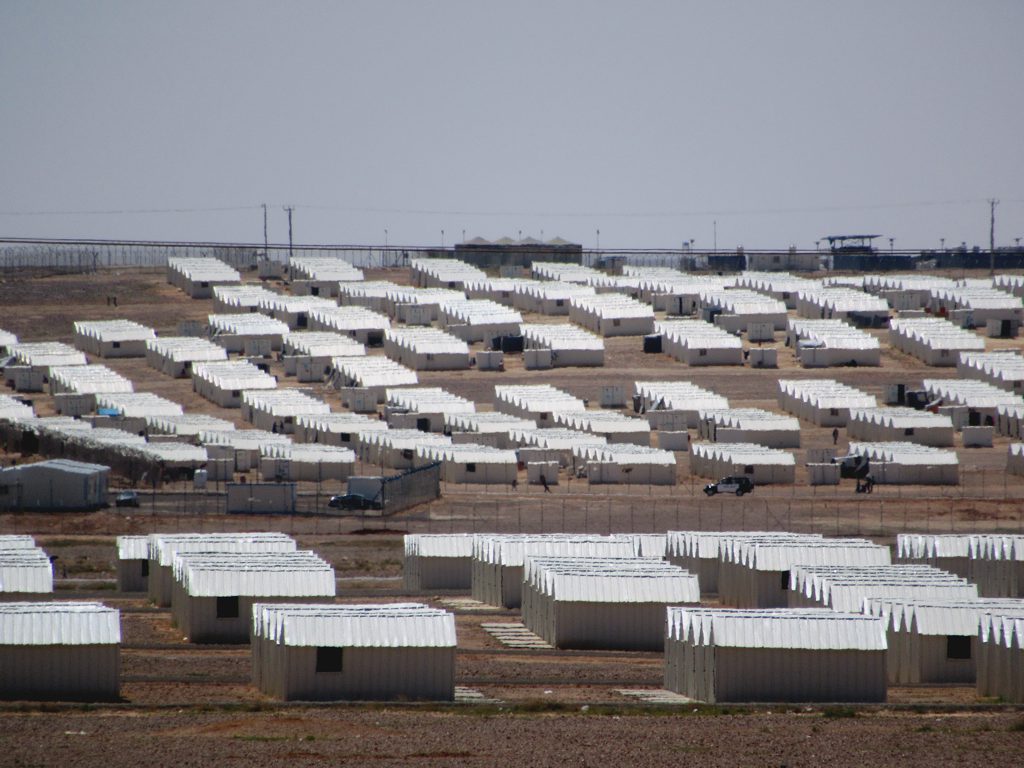Jordan’s Ministry of Energy and Mineral Resources (MEMR) has issued a tender for the construction of a second MW-sized PV power plant at the refugee camp of Azraq, near its northern border with Syria.
In the document, the ministry said the selected developer will be tasked with the design, supply, construction, commissioning and warranty of the grid-connected PV project, to be carried out on an EPC turnkey basis. The project will be financed with an undisclosed sum from the European Union, the ministry added.
The plant will have a 5 MW capacity and will be the second PV project installed at the camp. Project proposals must be submitted by September 19.
The first, 2 MW solar plant at the Azraq camp was completed in May and was financed by the Ikea Foundation’s Brighter Lives for Refugees campaign, with around €8.75 million ($10.1m). According to the United Nations' High Commission for Refugees (UNHCR), the small solar park is currently providing around 30% of the camp’s energy needs.
Any surplus electricity from the two solar fields will be fed into Jordan's power network.
Solar lanterns given to households
Popular content
Opened in April 2014, the Azraq camp hosted around 36,000 refugees from the seven-year Syrian conflict by the end of July, according to the latest report by the UNHCR, which is managing the area with the government of Jordan.
The camp's four villages include six schools, four primary health care centers, three markets, community centers and other learning environments. “Each shelter consumes 2.2-2.4 kWh/day [on average], enough power to operate lights, a refrigerator, television [and] a fan and [to] charge phones,” stated the UNHCR report.
The humanitarian organization has distributed an average of four solar lanterns per household, to provide light to residents of the two camp villages not yet supplied with electricity.
The Zaatari refugee camp is also being powered by solar. In November, a 12.9 MW PV plant in the area was connected to the grid. The power generated will predominantly power lights, heaters, shelters, refrigerators, TVs and power outlets for phones and other devices, said the UNHCR at the time.
This content is protected by copyright and may not be reused. If you want to cooperate with us and would like to reuse some of our content, please contact: editors@pv-magazine.com.



1 comment
By submitting this form you agree to pv magazine using your data for the purposes of publishing your comment.
Your personal data will only be disclosed or otherwise transmitted to third parties for the purposes of spam filtering or if this is necessary for technical maintenance of the website. Any other transfer to third parties will not take place unless this is justified on the basis of applicable data protection regulations or if pv magazine is legally obliged to do so.
You may revoke this consent at any time with effect for the future, in which case your personal data will be deleted immediately. Otherwise, your data will be deleted if pv magazine has processed your request or the purpose of data storage is fulfilled.
Further information on data privacy can be found in our Data Protection Policy.